Welcome Message
WorldFish had a remarkable year in 2018 developing and scaling scientific innovations that support the sustainable transformation of food systems with fish for the benefit of people and the planet.
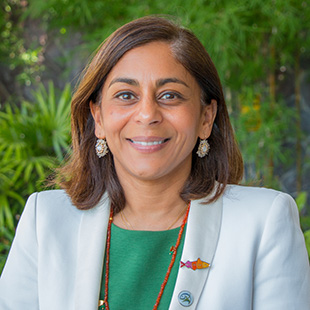
In 2018, we made notable progress toward our ambition to position fish firmly at the heart of discourse, policy and practice currently shaping the global thinking on transforming food systems, paying closer attention to nutrition and healthier diets, and informing the path toward an inclusive and sustainable blue economy.
Yvonne Pinto,Board Chair

The emerging blue economy provides new research, policy and investment opportunities to build a stronger case for fish and to promote evidence-based solutions that work for the health and wellbeing of people and the sustainability of our planet. WorldFish is uniquely positioned among the 15 CGIAR centers to link food systems in land and water through fish and build novel and disruptive public private partnerships.
Gareth Johnstone,Director Genera
Big splashes in 2018
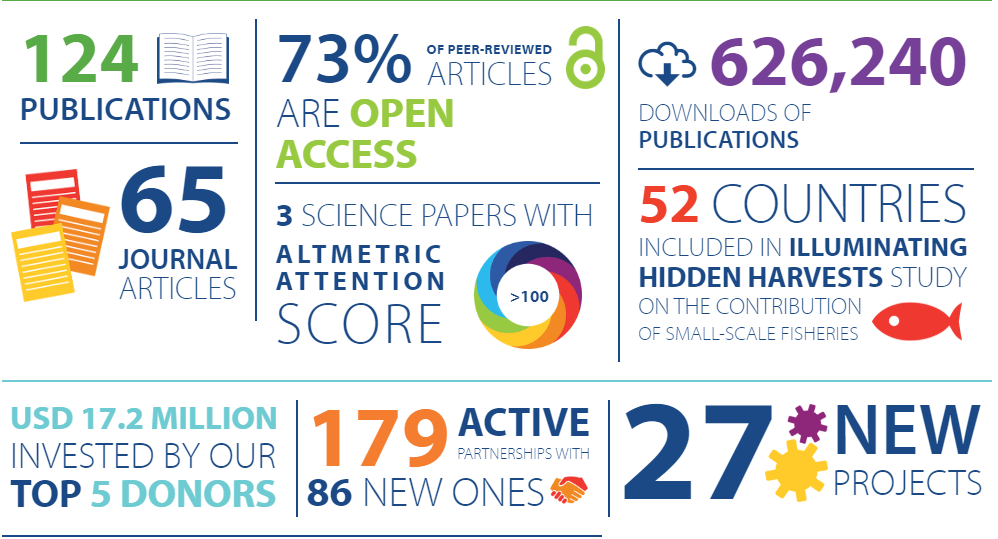
Highlights from 2018
Fish continues to rise on the global development agenda. During 2018, we made a strong case for the role of fish in healthier nutrient-rich diets, increased incomes and improved job and entrepreneurship opportunities, particularly for women and young people, as well as the conservation, protection and restoration of critical natural resources—both on land and below water—by generating and disseminating scientific evidence to shape action, policies and practices for the sustainable development of fisheries and aquaculture.
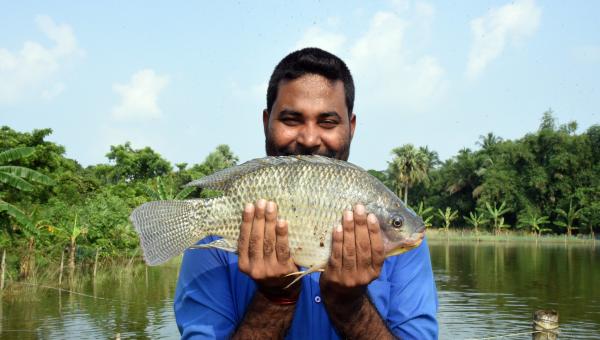
Fish in the blue economy
We are seeing evidence of new thinking, new information and new alliances emerging in the blue economy space. However, these often lack scientific rigor and substance, creating substantial...
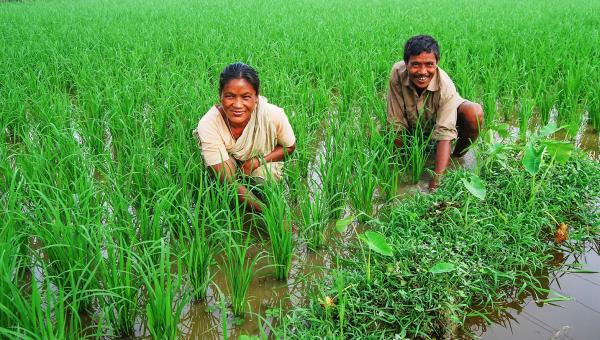
Fish in food systems
Our strategic research has to date focused on increasing supplies of sustainably produced fish from aquaculture and enhancing the social, economic and environmental benefits to the poor and...
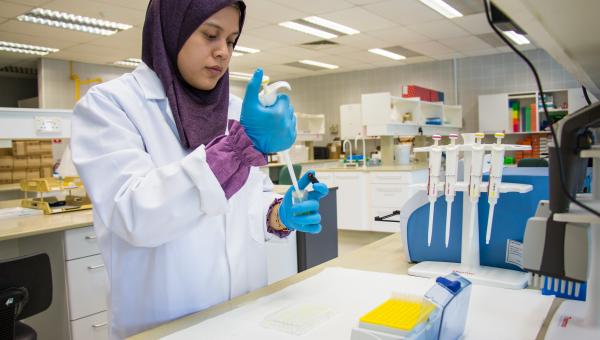
Leader in sustainable aquaculture
WorldFish continued to strengthen its global lead in sustainable aquaculture, with three genetics research platforms now fully operational. In 2018, we successfully produced new generations of...
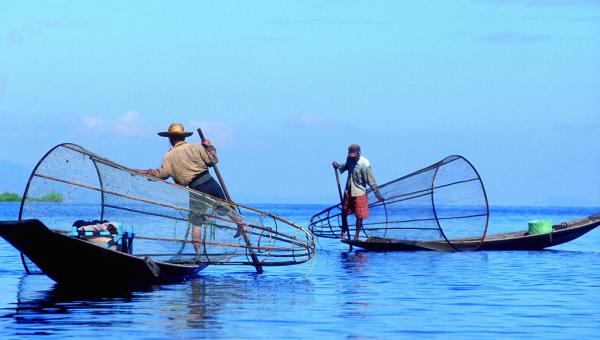
Focus on fisheries
The successful rebid for funding of our small-scale fisheries research in 2017 helped to increase the visibility of our small-scale fisheries work in 2018. This was supported by a substantive growth...
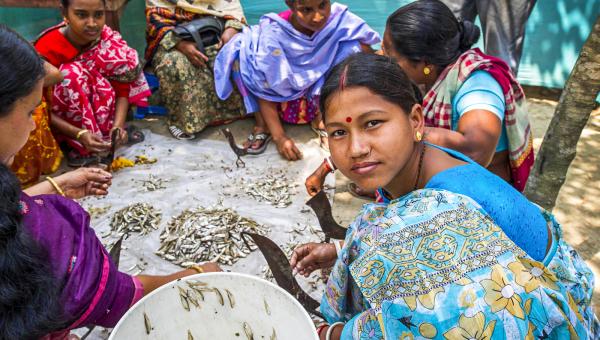
Fish for nutrition
Too often, global reports on agriculture make marginal reference to fish and its contribution to livelihoods and the food and nutrition security of billions of people in the developing world. This...
WorldFish and the SDGs
WorldFish is part of the global effort to eradicate poverty, hunger and malnutrition and reverse environmental degradation, as well as many complex global challenges reflected in the 2030 Sustainable Development Goals (SDGs). Ten of these SDGs are particularly pivotal to our work and mission. Hover over each SDG icon below to find out how we contribute to these goals.










Globally, approximately 800 million people depend on fisheries and aquaculture for their livelihoods. WorldFish works to create opportunities in sustainable and productive fisheries and aquaculture to help lift out of poverty people who rely on fish for their income, livelihoods and well-being.
Fish offers untapped potential to meet increasing demand for safe, nutritious food by a growing population. By developing fisheries and aquaculture in an environmentally and socially responsible way, WorldFish seeks to improve the availability of and access to diverse, nutrient-rich diets incorporating fish.
Fish, particularly small fish, are rich in micronutrients like vitamin A, iron, calcium, zinc and essential fatty acids. WorldFish strives to make quality fish available and affordable to the poor in developing countries, particularly women and children in the first 1000 days. Our research informs strategies for combating under- and malnutrition and for preventing public health issues, such as stunting and other non-communicable diseases related to poor diets and nutritional deficiencies.
Rural women play a vital role in fisheries and aquaculture as fishers, farmers, processors and traders. However, they often have unequal access to the resources and services they need to be successful. WorldFish works to address gender inequalities and their underlying factors in order to improve the fish-based livelihoods of women, who in turn amplify the benefits of these livelihoods for their children, families and communities.
WorldFish research shows that adopting new technologies alone is not enough to improve productivity. Using natural resources efficiently, pursuing innovation and having access to knowledge, networks or credit to invest in business and other entrepreneurial activities, especially for poor women and youth, are also vital and central to our contribution to this SDG, particularly in Small Island Developing States.
WorldFish works closely with national actors to enhance local capacities for scientific research and technological innovation in fisheries and aquaculture. We also support the integration of small-scale fish producers and enterprises into national, regional and global value chains and markets.
In the face of a growing world population and the impacts of climate change, there is an increasing imperative to do more and better with less. WorldFish works to achieve sustainable management and efficient use of natural resources and to reduce waste and loss along fish value chains.
Overfishing, ineffective management practices, industrial development, agricultural pollution and the impacts of climate change have reduced fish stocks. WorldFish conducts cutting-edge genetics research on improved and resilient fish species and promotes a sustainable approach to fisheries and aquaculture to ensure that enough nutritious fish are available for future generations.
Ensuring that all users benefit equitably from marine and aquatic resources requires new thinking, new information and greater collaboration between less traditional partners. Among the 15 members of the CGIAR, WorldFish is uniquely positioned to contribute to this SDG. We focus on generating evidence-based solutions that inform policies and practices relating to sustainable ocean governance and the development of an inclusive and people-centered blue economy, with special attention for the value and contribution of small-scale fisheries.
Many land-based activities, such as pollution, plastics, deforestation and livestock waste, are affecting, altering or destroying oceans, lakes and other inland aquatic ecosystems and habitats. Preserving life below water (SDG 14) also requires the adoption of environmentally sustainable practices on land. WorldFish research is informing interventions to reduce waste and loss in fish handling and processing, to conserve and restore degraded ecosystems in inland and coastal environments and to develop gender-responsive practices and technologies for innovative small-scale aquaculture systems with low environmental impact.
From Research To Impact

Reduced poverty through fish
Around 800 million people depend on fisheries and aquaculture for their livelihoods. The very poor often rely on fishing as a primary source of income and are particularly vulnerable when fish stocks decline. We focus on mitigating risks to livelihoods and contributing to income generation and employment by supporting increased productivity from fisheries and aquaculture through innovative technologies and sustainable practices and reducing waste in fish value chains.

Nourishing nations with fish
Factors such as low incomes, insufficient fish supplies and inefficiencies in value chains constrain access by poor consumers to highly nutritious and affordable fish products. Postharvest losses are a particularly widespread challenge, as is a lack of information on good nutrition. We apply a food systems approach as well as social- and behavior-change communications, where appropriate, to help feed billions and nourish nations in the developing world.
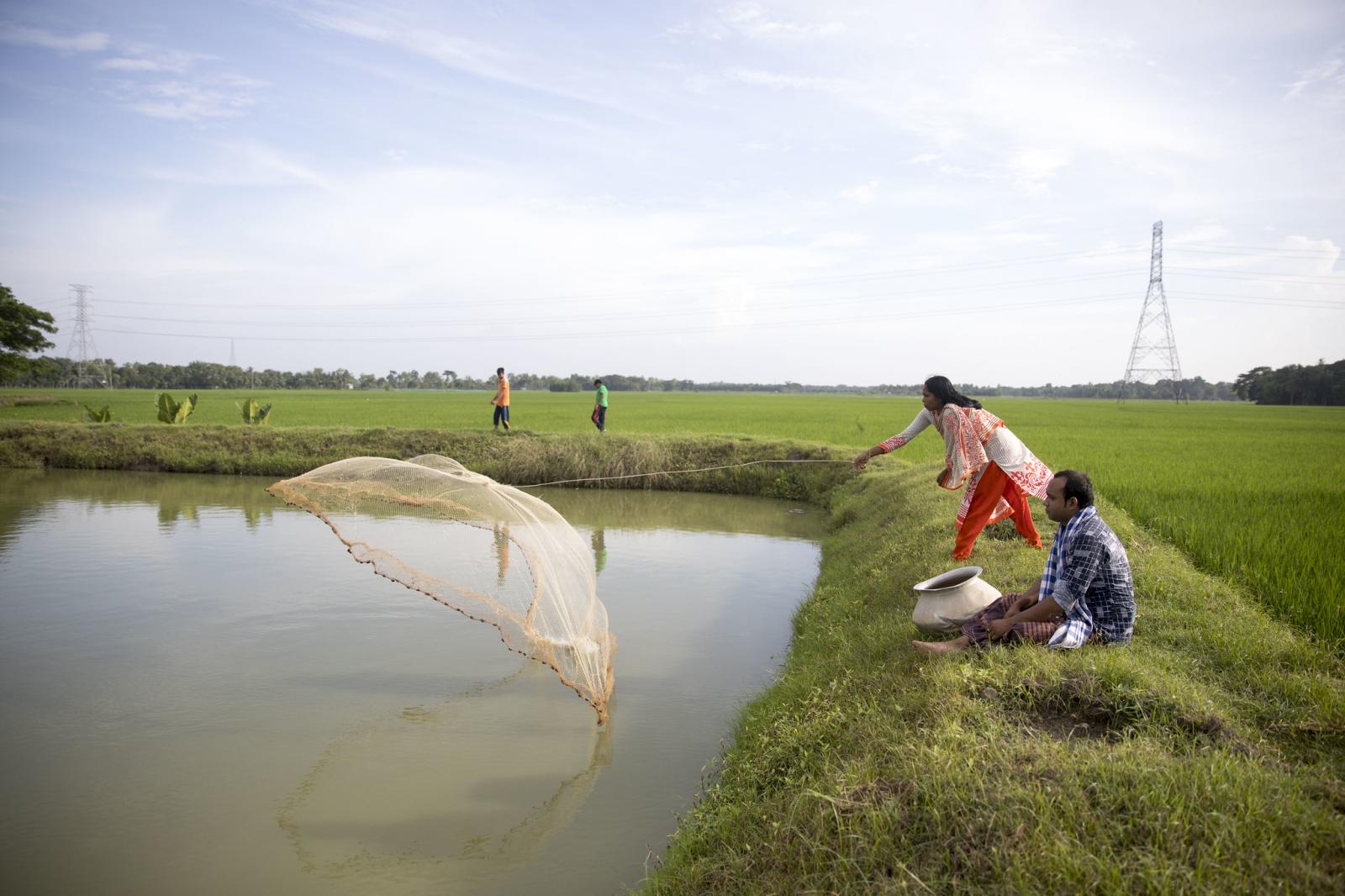
More sustainable fish agri-food systems
In the face of climate change and other threats, we recognize the need to restore degraded fish agri-food systems and manage them more sustainably. We use life-cycle assessment to quantify the environmental impacts of aquaculture production and identify solutions for the development of sustainable aquaculture systems. In small-scale fisheries, we work to integrate local-scale action research on tenure systems with analysis of broader institutions and policies for governance, contributing to equitable resource use and restoration of agroecosystems in both inland and coastal environments.
Crosscutting impacts
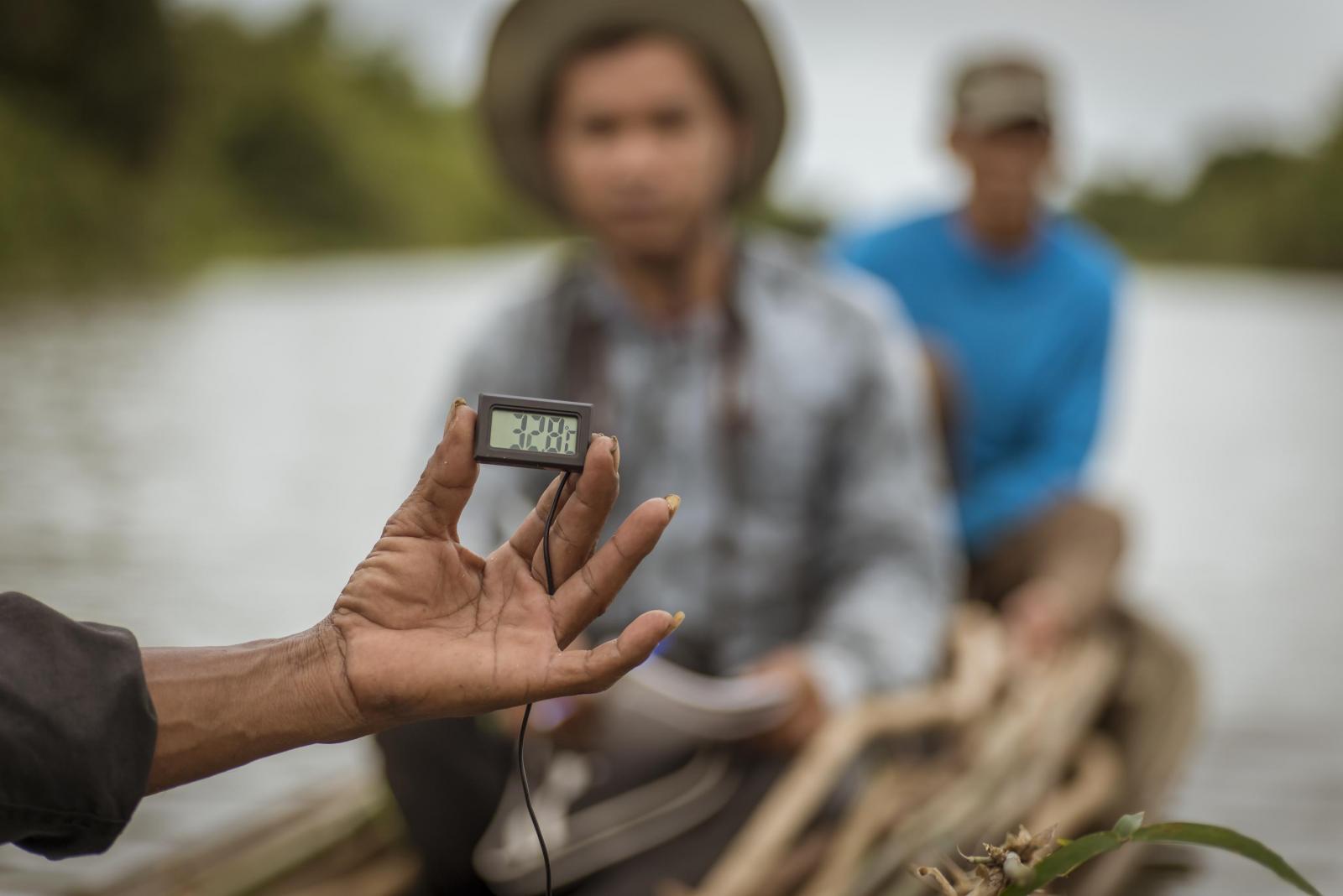
Informing action on climate change
Climate change impacts fisheries and aquaculture directly, by influencing production quantities and efficiency, or indirectly, by influencing the market price of fish or the costs of goods and services required by the fisheries and aquaculture sectors. Our research on climate change therefore seeks to provide new knowledge on mitigation and adaptation strategies to build resilience among poor fish-dependent populations across Africa, Asia and the Pacific.
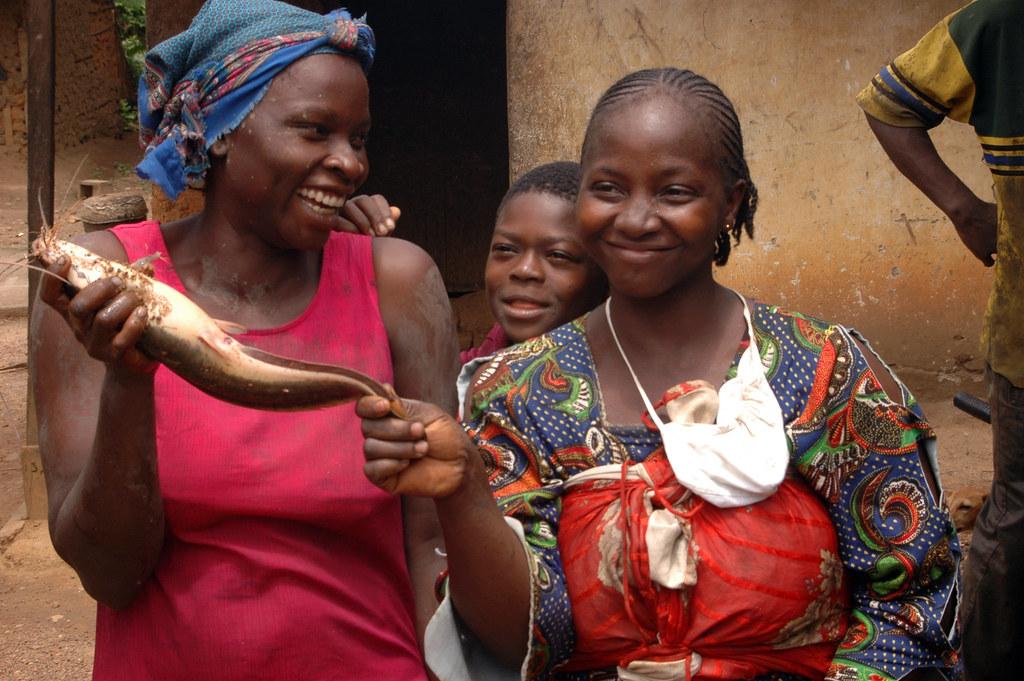
Empowered women and youth
Achieving impacts at the scale of our ambition can only happen by leveraging the dynamism of private enterprise and creating new jobs and better economic opportunities, particularly for women and youth. We work in fisheries and aquaculture value chains to tap the vast potential offered by fish processing and trade, the supply of inputs such as locally produced feed and seed for aquaculture, and the marketing and distribution of nutritious fish-based products for maternal and child health.
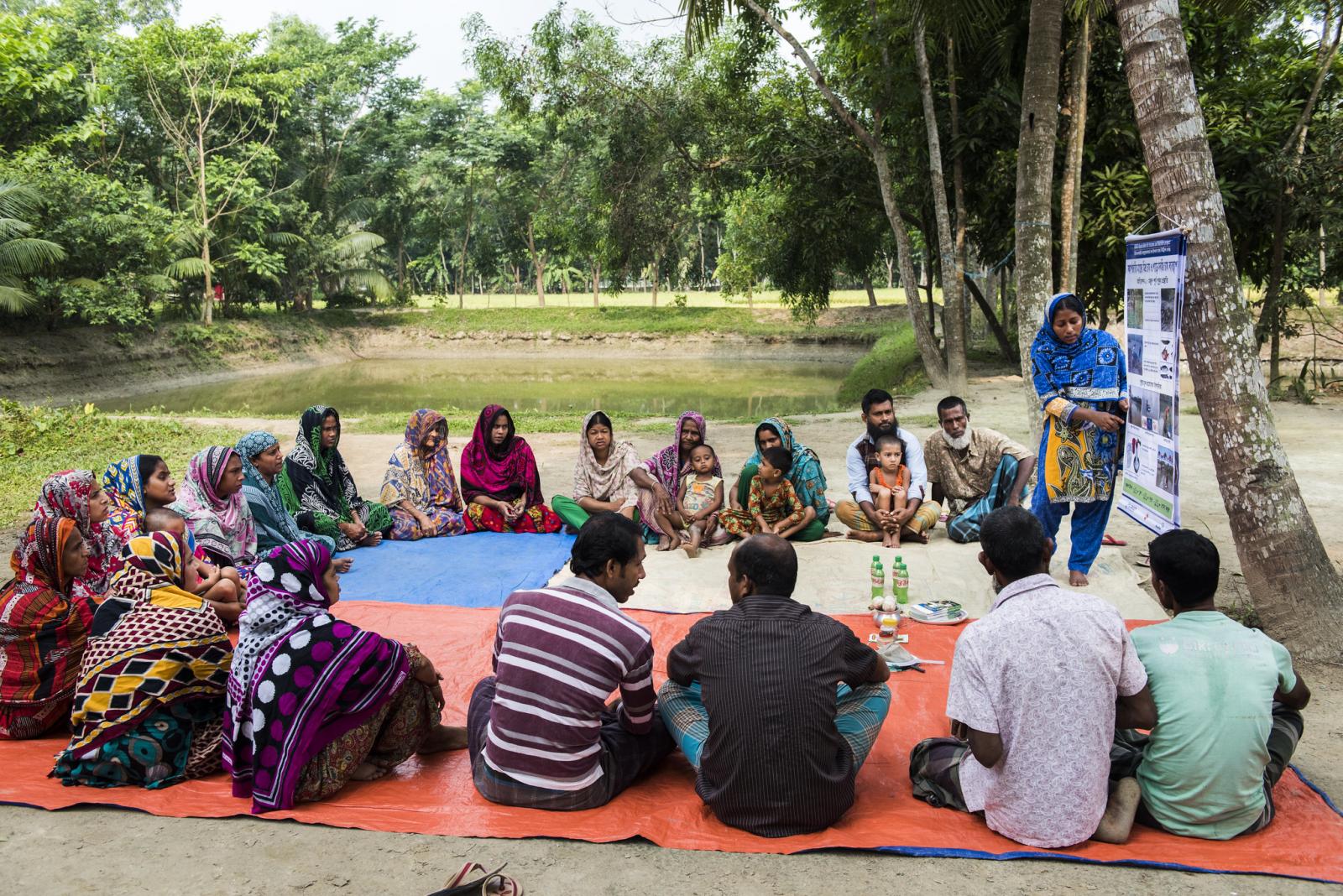
Capacity building
Capacity development is a key enabler of impact and is needed to support movement from research outputs to research outcomes and ultimately to development outcomes. We work with stakeholders along our impact pathway to assess capacity needs and intervention strategies, taking into account national development priorities. These include the capacity of farmers to demand and adopt aquaculture technologies and apply improved practices, and of fishing communities to implement co-management; public sector capacity to design and implement policy and regulatory measures that affect the viability of scalable technologies; and the capacity of development agencies to integrate evidence-based solutions into their programming and investment priorities. The resulting interventions use innovative learning materials and approaches that are gender and youth sensitive, such as those employed at the WorldFish-run Africa Aquaculture Research and Training Center in Abbassa, Egypt.
Living our values
WorldFish is founded on the values of integrity and trust, fairness and equity, excellence and innovation, and teamwork and partnership. In 2018, we launched several initiatives that support our commitment to living our values across the organization.

Integrity and Trust
We are honest, open and accountable with the resources invested in us, and we deliver on our commitments.

Fairness and Equity
We respect and celebrate diversity and actively challenge social and gender inequities that impede progress toward our goals.

Excellence and Innovation
We pursue high standards of scientific and professional rigor and embrace impartial evaluation, critical reflection, learning and adaptation.

Teamwork and Partnership
We seek to leverage our complementary strengths within teams and across institutional boundaries to achieve the greatest impact.
Saying no to single-use plastics
We successfully ran an internal campaign to raise awareness about the impact of single-use plastics and eliminate them in the office.
Gender equality in the workplace
We increased the number of women in science to just under 40 percent and in management to 60 percent.
Innovation and learning lab
A data-driven methodology is addressing challenges in project start-up and delivery, with notable improvements reported.
Building science capacity and quality
Science capacity was a priority in 2018, with a target of increasing science staff by 20 percent.
Monitoring and evaluation
The adoption of a monitoring, evaluation and learning platform is improving our overall research management capacities.
Fish for thought
Our revamped Fish for Thought events are facilitating knowledge sharing and learning across science disciplines and geographies.
Communicating science knowledge and evidence
A comprehensive communications and marketing strategy driven by a stronger focus on new and digital media is raising the profile of our research evidence.
626,240
downloads
of WorldFish publications
264,761
visitors
to the WorldFish website
2.5
million people
reached on social media
44.5%
new followers
on Facebook, Twitter and LinkedIn
265,881
views
of our videos
746
stories
about WorldFish and our work in the news
We believe that effective communication of our research and the scientific evidence we produce is critical for making a difference to the people whose livelihoods, in both the developing and developed world, depend on and are shaped by fish. Those who support our work understand through communication that our research is relevant because it helps shape solutions to many pressing development challenges. At the same time, effective communication enables others to translate our science into actions from discourse and advocacy to practice and policy.
Read More
Publications Highlights
The following is a selection of key publications from 2018. Find all our publications and research outputs online.
Building adaptive capacity to climate change in tropical coastal communities
Nature Climate Change 8:117–123.To minimize the impacts of climate change on human well-being, governments, development agencies and civil society organizations have made substantial investments in improving people’s capacity to adapt. To date, these investments have tended to focus on a very narrow understanding of adaptive capacity. Here, the authors propose a new approach to build adaptive capacity across five domains.
Cinner JE, Adger WN, Allison EH, Barnes ML, Brown K, Cohen PJ, Gelcich S, Hicks CC, Hughes TP, Lau J et al. 2018.
Journal Impact Factor 19.181
DOIhttps: https://doi.org/10.1038/s41558-017-0065-x
DSpacehttp: https://hdl.handle.net/20.500.12348/667
Wealthy countries dominate industrial fishing
Science Advances 4(8):eaau2161.This article reports patterns of industrial fishing effort for vessels flagged to higher- and lower-income nations, using analyses of high-resolution fishing vessel activity data. Insights from these analyses can strategically inform important international- and national-level efforts to ensure equitable and sustainable sharing of fisheries.
McCauley DJ, Jablonicky C, Allison EH, Golden CD, Joyce FH, Mayorga, J and Kroodsma D. 2018. Journal Impact Factor 11.511
DOIhttps: https://doi.org/10.1126/sciadv.aau2161
DSpacehttp: https://doi.org/10.1126/sciadv.aau2161
Measuring the potential for sustainable intensification of aquaculture in Bangladesh using life-cycle assessment
PNAS 115(12):2958–2963.Life-cycle assessment is operationalized here as a tool to evaluate a range of environmental impacts resulting from the intensification of aquaculture production in Bangladesh and a subset of trade-offs among them. These findings are used to identify simple improvements in farm management practices that can make the intensification of aquaculture more sustainable and avoid some of the environmental pitfalls of agriculture and livestock production.
Henriksson PJG, Belton B, Jahan KM, Rico A. 2018.
Journal Impact Factor 9.0504
DOIhttps: https://doi.org/10.1073/pnas.1716530115
DSpacehttp: http://hdl.handle.net/20.500.12348/715
Mapping global human dependence on marine ecosystems
Conversation Letters 12(2):e12617.The authors created a new conceptual model to map the degree of human dependence on marine ecosystems based on the magnitude of the benefit, susceptibility of people to a loss of that benefit and the availability of alternatives. The model showed that more than 775 million people are highly dependent on marine fisheries, providing the basis for more targeted management and policy interventions for vulnerable small-scale fishing communities.
elig ER, Hole DG, Allison EH, Arkema KK, McKinnon MC, Chu J, de Sherbinin A, Fisher B, Glew L, Holland MB et al. 2018. Journal Impact Factor 7.279
DOIhttps: https://doi.org/10.1111/conl.12617
DSpacehttp: http://hdl.handle.net/20.500.12348/2225
Tilapia lake virus: a threat to the global tilapia industry?
Reviews in Aquaculture 1–15.Tilapia lake virus (TiLV) is a recently described virus affecting wild and farmed tilapines. Currently, there are severe knowledge gaps relating to TiLV and no effective, affordable vaccines available. This paper summarizes the published scientific information on TiLV and highlights important issues relating to its diagnosis, mitigation and control measures.
Jansen MD, Ha TD, Mohan CV. 2018.
Journal Impact Factor 7.139
DOIhttps: https://doi.org/10.1111/raq.12254
DSpacehttp: http://hdl.handle.net/20.500.12348/717
Our Partners
Our work is rooted in multidisciplinary science and food systems thinking. It is guided by national priorities and the capacity development needed to improve agricultural research and extension systems; it is enhanced by our unique ability to convene and broker novel partnerships with development actors and the private sector as a mechanism to take innovations through to impact at scale.
Our Investors
Our work is funded by an extensive network of investors committed to tackling specific challenges within the global 2030 sustainable development agenda. Thanks to their generous support, we are helping to eradicate poverty, hunger and malnutrition among the millions of people who depend on fish for food, nutrition and income in the developing world.
Financial Overview
| STATEMENT OF FINANCIAL POSITION (USD ‘000) | ||
|---|---|---|
| As of 31 Dec 2018 | As of 31 Dec 2017 | |
| ASSETS | ||
| Cash and cash equivalents | 10,555 | 14,614 |
| Account receivable | 6.100 | 4,026 |
| Other current assets | 277 | 253 |
| Capital assets | 516 | 605 |
| TOTAL ASSETS | 17,448 | 19,418 |
| LIABILITIES | ||
| Accounts payable | 6,653 | 8,154 |
| Accruals and provisions | 1,480 | 1,089 |
| Other current liabilities | 57 | 45 |
| Non-current liabilities | 430 | 473 |
| TOTAL LIABILITIES | 8,620 | 9,716 |
| NET ASSETS | 8,828 | 9,737 |
| TOTAL LIABILITIES AND NET ASSETS | 17,4448 | 19,498 |
| STATEMENT OF OPERATING ACTIVITIES (USD ‘000) | ||
|---|---|---|
| For the years ended December 31 | 2018 | 2017 |
| REVENUE | ||
| Grants | 29,070 | 24,718 |
| Other income | 223 | 997 |
| TOTAL REVENUE | 29,293 | 25,715 |
| EXPENSES | ||
| Research | 19,261 | 17,093 |
| Administration, support and other | 10,941 | 8,647 |
| TOTAL EXPENSES | 30,202 | 25,740 |
| NET DEFICIT | (909) | (25) |
WorldFish expenditure by region, 2018
WorldFish expenditure by cost category, 2018
Our team
BOARD OF TRUSTEES
Yvonne Pinto, Board Chair, Agricultural Learning and Impact Network (ALINe), United Kingdom
Africa
Ayman Anwar Ammar, Central Laboratory for Aquaculture Research (CLAR), Egypt
Baba Yusuf Abubakar, Board Vice-Chair, University of Abuja, Nigeria
Abdou Tenkouano, West and Central Africa Council for Agriculture Research and Development (CORAF), Senegal
Asia-Pacific
Tony Haymet, Chair of the Governance Committee, Scripps Institution of Oceanography, Australia
Hee Kong Yong, Chair of the Audit Committee, ASEAN Advisory, Malaysia
YBhg. Dato’Haji Munir Haji Mohd Nawi, Department of Fisheries, Malaysia
Europe
Anthony Long, Chair of the Governance Committee, Belgium (resigned 7 May 2018)
Gareth Johnstone, ex-officio member, Director General, WorldFish
North America
Cristina Rumbaitis del Rio, independent consultant, United States (joined 1 October 2018)
EXECUTIVE TEAM
Gareth Johnstone, Director General
Michael Phillips, Director, CGIAR Research Program on Fish Agri-Food Systems and Aquaculture and Fisheries Sciences
Zarinah Davies, Director of Human Resources and Administration
David Shearer ,Director of International Partnerships and Program Delivery
Tana Lala-Pritchard, Director of Communications and Marketing
Marc-Antoine Baïssas, Director of Finance and IT Systems (interim)
GLOBAL RESEARCH LEADERS
John Benzie, Sustainable Aquaculture Program LeaderPhilippa Cohen, Resilient Small-scale Fisheries Program Leader
Shakuntala Thilsted, Value Chains and Nutrition Program Leader
Cynthia McDougall, Gender Research Leader
Cristiano Rossignoli, Monitoring and Evaluation Leader
COUNTRY DIRECTORS
Africa
Harrison Charo Karisa, Country Director, Egypt and Nigeria
Sloans Chimatiro, Country Director, Zambia and Tanzania
Asia
Malcolm Dickson, Country Director, Bangladesh
Yumiko Kura, Country Director, Cambodia
Michael Akester, Country Director, Myanmar
Pacific
Delvene Boso, Country Director, Solomon Islands
